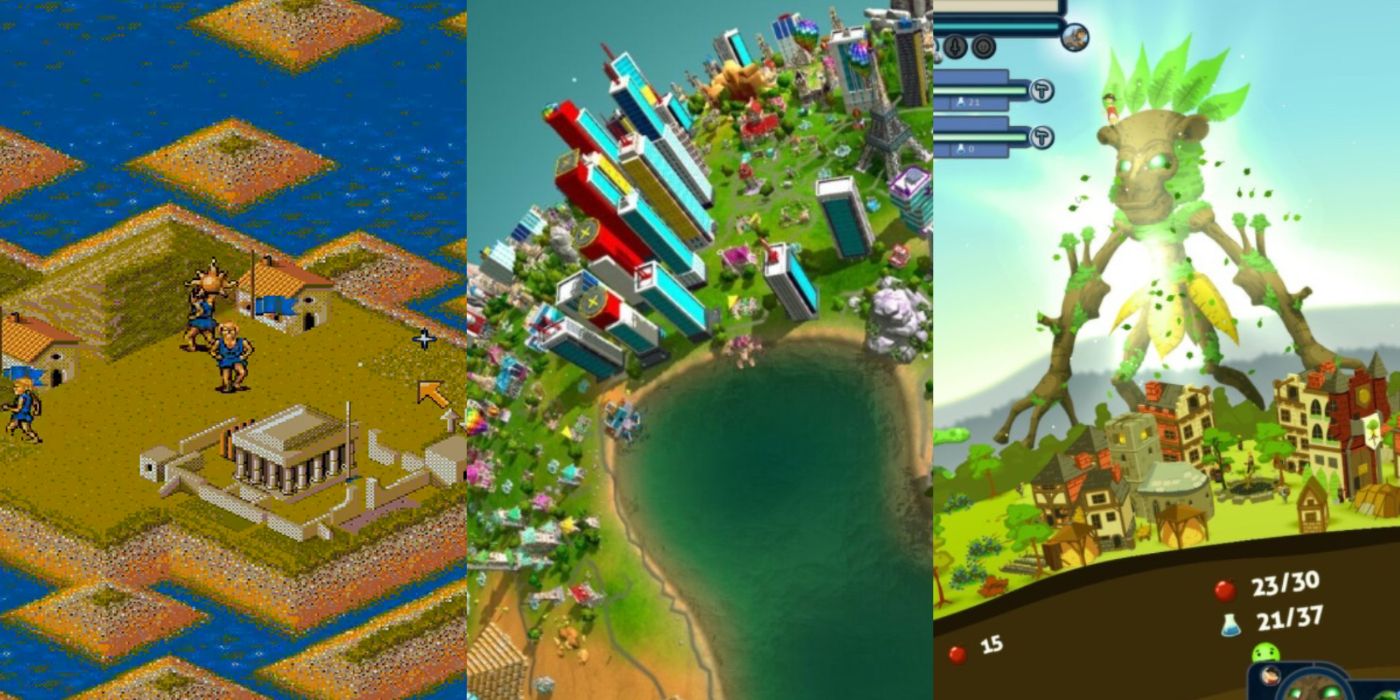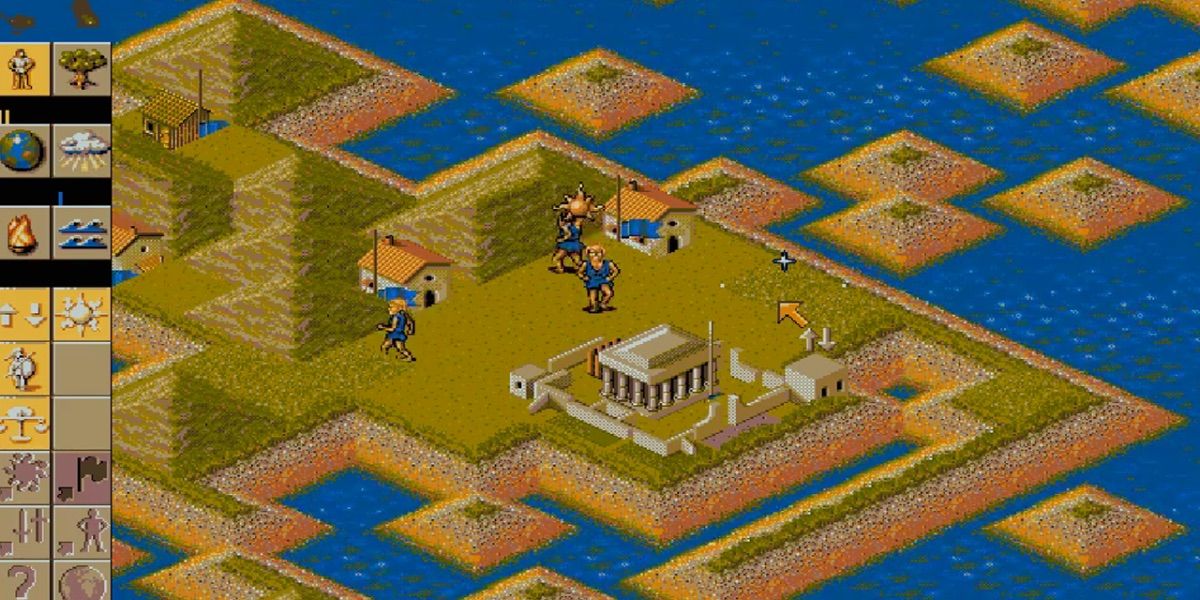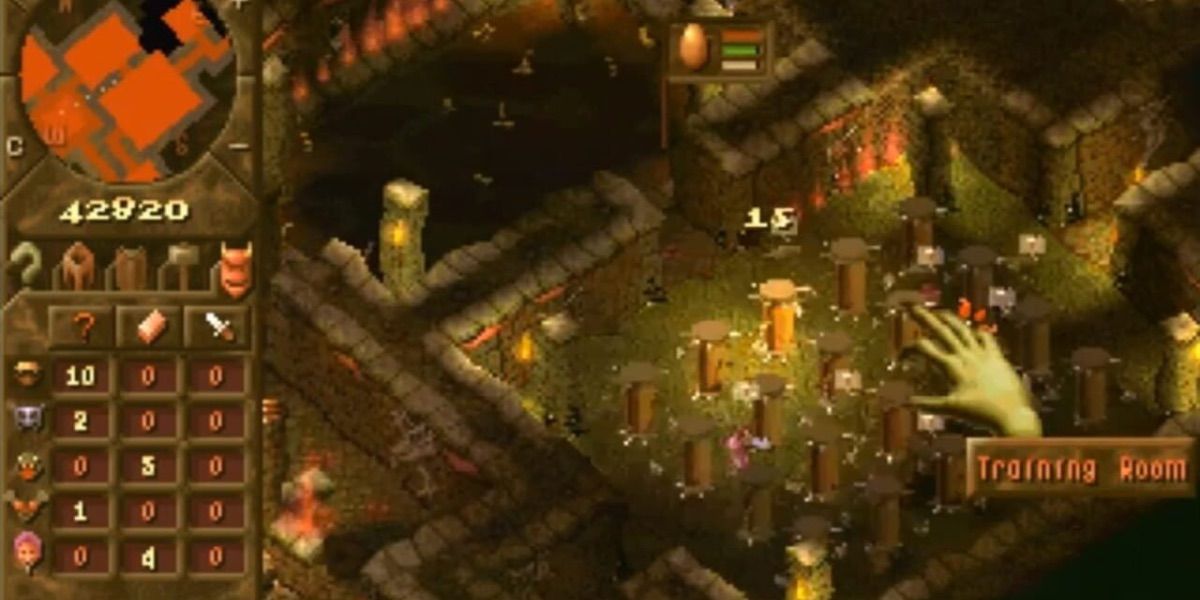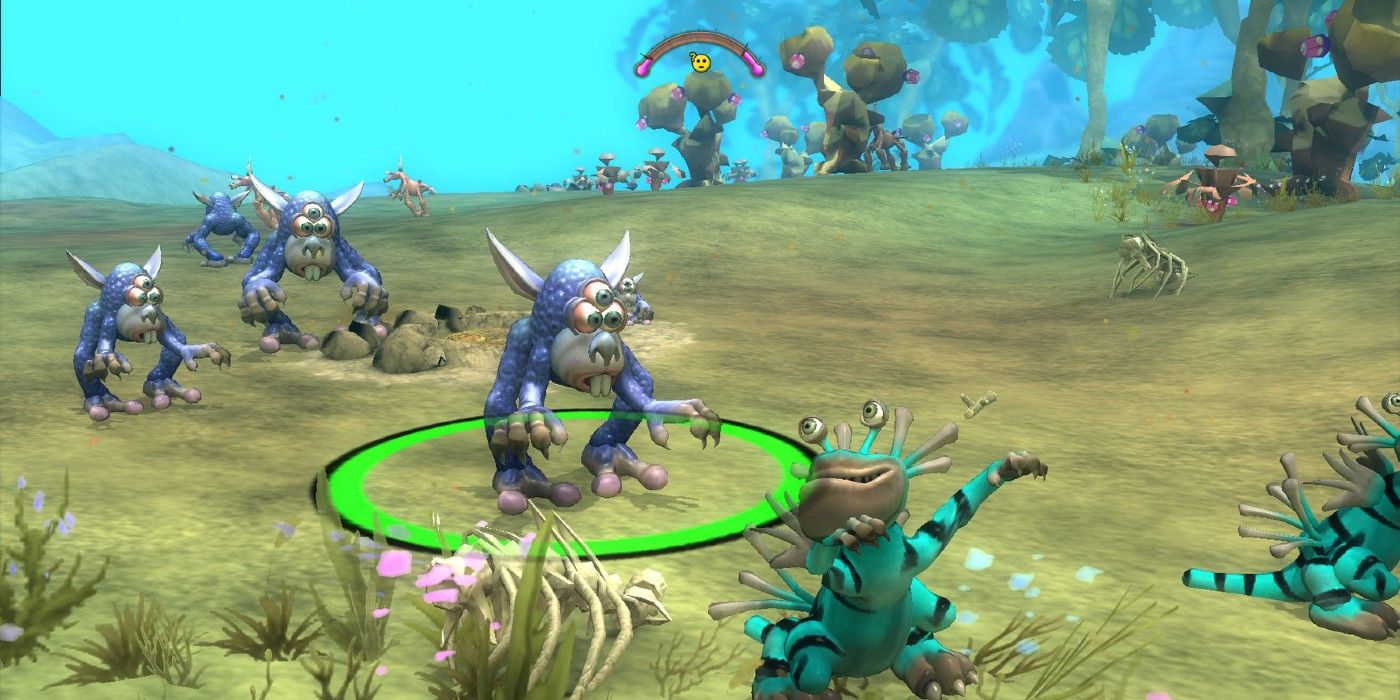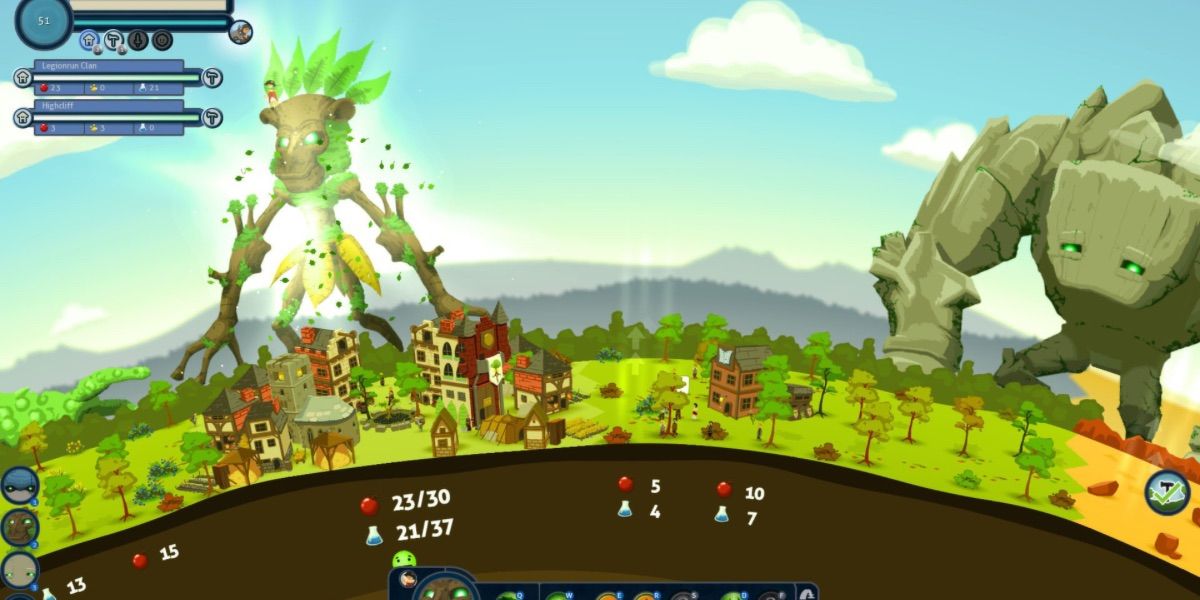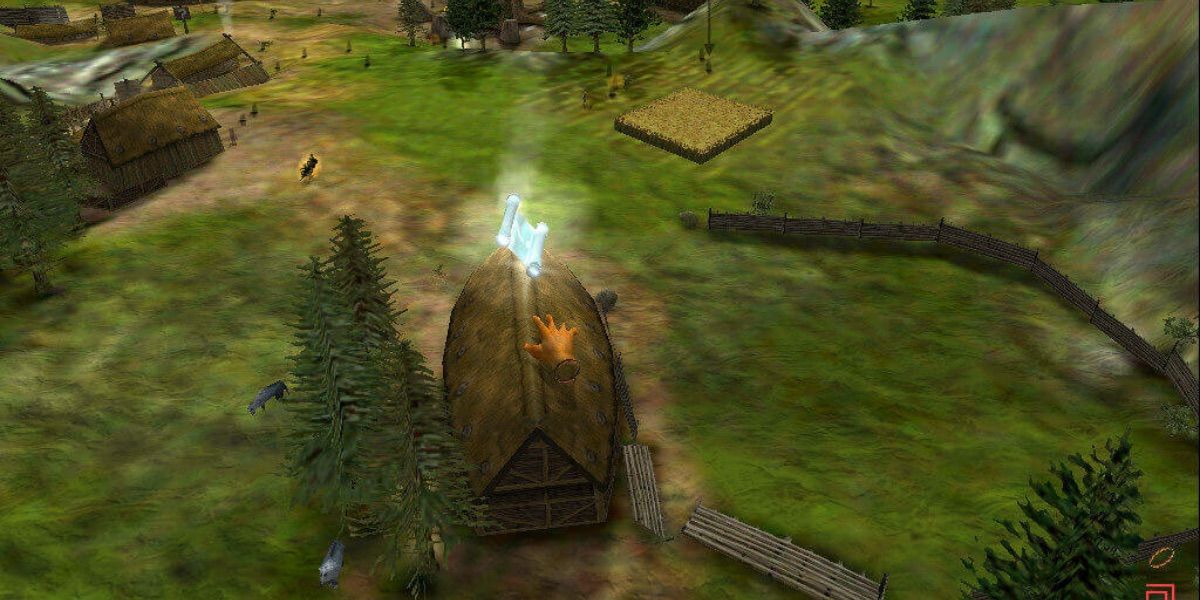Video games are all about control, and the popular subgenre known as "god games" gives players the ultimate form of control. Though the games vary in execution, the best that the genre has to offer allows users to literally play god, dictating whatever happens on their simulated worlds and universes.
From recognized classics such as Spore to beloved family hits like Viva Piñata, god games offer a unique simulation experience that can't be found in just any video game. Though there have been many excellent titles, only the best god games had players coming back again and again to build new worlds.
Populous (1989)
Though games would come later to improve on the formula, Populous is generally considered the first of its kind, and it put the god game on the map. The user is a deity that must lead their followers against the followers of a rival deity in order to conquer and capture them.
The game was radical for its time and the graphics were top-notch when compared to most other games in the late-80s. Loosely based on tabletop gaming, the game's isometric view also added to the godlike atmosphere for the player. With a wide variety of divine abilities at the user's disposal, the game's 500 levels could be conquered through a number of different strategies.
Deisim (2019)
As far as god games have come since their humble beginnings, Deisim hoped to return them to their roots with a modern twist. As always, the user is an omnipotent god who must control their civilization from its dawn to various stages of human evolution.
The main conflict of the game is stamping out heresy, but the player is essentially free to do whatever they want. Deisim's simplistic graphics harken back to the old days of god games, but the use of VR technology helped to make it feel ultramodern as well. Though it isn't one of the most immersive VR experiences of all time, the new tech certainly helped the player feel like they were the god.
Dungeon Keeper (1997)
Despite their divine title, god games don't always exemplify the benevolence of a deity, and Dungeon Keeper actually encouraged bad behavior. The user takes control of a dungeon master who must recruit minions to protect their domain from the forces of good who aim to liberate them.
Tongue-in-cheek in its dark humor, Dungeon Keeper is a clever parody of the god game format, and essentially pokes fun at the devious tendencies of players who enjoy torturing their subjects. Aside from its humorous themes, the game featured addictive gameplay that rewarded players for their creativity as they conquered the world.
The Universim (2018)
As the technology behind video games has gotten more complex, god games have naturally matched them in complexity. The Universim broadened the horizons of the genre and tasks the player with helping their planet's civilization to flourish and eventually conquer other planets as well.
Taking cues from some of the best space exploration sim games, The Universim cleverly blends its genres into a unique mixture that elevates both. The user must balance a lot of tasks as their subjects are capable of making their own decisions that can lead to folly. Though the player is a god, they aren't fully in control of disasters that can befall their people.
Everything (2017)
The beauty of the god game is that it can be as simple or as complicated as the user wishes, and Everything approached its genre with a fair amount of heady speculation about the nature of life. The user takes control of a single organism and is capable of exploring the game's world through various levels of existence.
From the largest landmass, all the way down to the subatomic level, the user can journey through the world and catalog each new form of life that they encounter. Unlike other god games that are about influencing civilizations, Everything is more about the beauty of life and creation.
From Dust (2011)
The title of god game is taken rather literally in From Dust and the user becomes the deity of a small tribe living on an archipelago. The player must help a primitive tribe find enlightenment and protect them from natural disasters that can befall their nation.
Unlike other games that simply bestow the user with overarching godlike abilities, From Dust challenges its players to use creativity to avert disasters. The game was praised for its graphics, and it has a naturalistic beauty to its art design that sets it apart. Though it lacks a traditional sandbox mode, the game's many levels can be revisited once they are passed.
Spore (2008)
Throwing all familiarity out the window, Spore instead focused on the development of an alien race with the player in control of their evolution. The user directs the progress of an alien race from its cellular origins all the way to it becoming a spacefaring culture.
Despite its age, Spore is still one of the best games on EA Play, and its online components have kept it relevant over the years. The unique creativity at the heart of the game is what keeps it fresh, and the procedurally generated events mean that no two games are ever the same. Scope is the name of the game, and Spore certainly excelled in that department.
Viva Piñata (2006)
The sheer diversity of god games is one of the genre's appeals, and Viva Piñata went in a decidedly cutesy direction. The user tends a garden that attracts a series of piñata animals that can be looked after and categorized.
Unlike most god game which put the player in control of an entire planet, Viva Piñata focuses more on raising in-game animals and manipulating the immediate environment. Even though it has similarities to farming simulation games, it is nevertheless a god game that allows the user to control the world even if it is in a more limited way.
Reus (2013)
Control is one of the perks of the god game, but Reus instead added elements of delegation to the process. The user controls a series of giant beings that have the ability to influence aspects of the planet's development, and thus can help the people thrive.
The people of the game make their own decisions, but can be controlled through the supply line of resources. The indie nature of Reus helps it stand out from the big named god titles, and the uniqueness of its visuals are a plus. The novel gameplay is also something that helped the game to make a mark amongst the major releases it competed against.
Black & White (2001)
Though most god games don't speculate on the good or bad decisions that the player makes, Black & White made it central to the gameplay. The player is the god of a tribe, and is tasked with defeating a rival deity who also has designs of conquering the world.
Strategy is an important part of the game, and the player's decisions have an effect on the way that they are viewed by their subjects. They can be a good god, a neutral one, or a downright evil one, and each has their own benefits and negatives. For a game from the turn of the millennium, Black & White not only pushed the boundaries of what a god game could be, but embraced what had come before.

